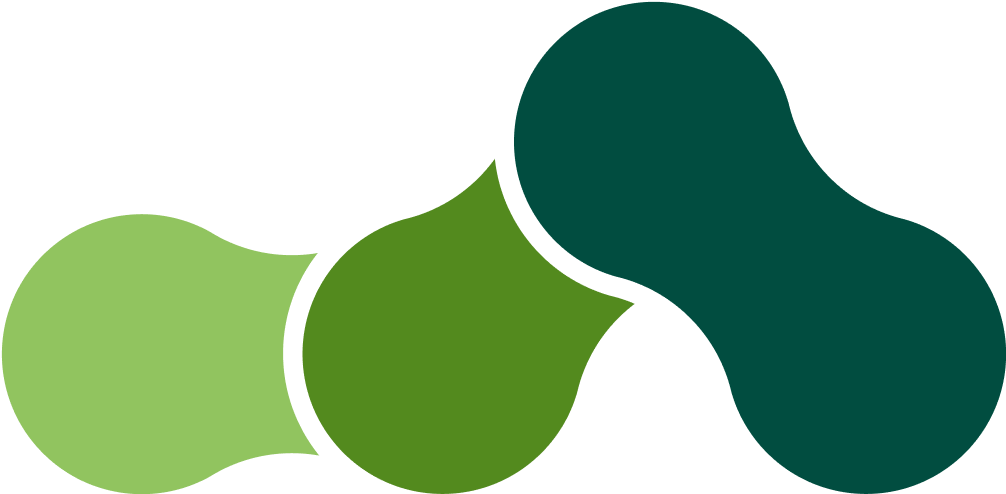Multilingual AI
Gateway to AI Excellence
Coreon’s Multilingual Knowledge Systems transforms your linguistic assets into machine-processable intelligence, supercharging your AI solutions and ensuring no language (and customer) is ever overlooked.
阴阳
The Yin and Yang of LLMs and Knowledge Graphs
Large Language Models (LLMs) are groundbreaking, assimilating the world’s knowledge and excelling in linguistic capabilities, often beyond human levels. Yet, deploying them in business applications is challenging. The knowledge within LLMs is implicit, hidden in a black box, and lacks domain/company specific information. The creativity of Generative AI often crosses the border to hallucination.
Fortunately, Knowledge Graphs (KGs) offer the perfect complement to LLMs. KGs contain structured, accurate, and consensus-based knowledge. It is curated by subject matter experts to cater to specific corporate needs. Coreon takes this a step further by ensuring that KGs are multilingual and language-agnostic.
By integrating Generative AI with Coreon’s Multilingual Knowledge Systems, businesses can harness the best of both worlds. This synergy not only mitigates the issue of hallucinations in AI-generated content but also leverages specific company knowledge and terminology. The result are solutions that speak directly to the needs of a global customer base, combining the expansive reach of LLMs with the precision and relevance of structured knowledge graphs.

BUILT on KNOW-HOW
Elevate Your Linguistic Assets for AI
Navigating the complex landscape of language assets can be challenging. Organizations often juggle a variety of vocabularies, keyword lists, and terminology collections, alongside taxonomies, classifications, and ontologies. These elements typically exist in isolated silos, often overlapping and creating redundancy.
Coreon’s Multilingual Knowledge System offers the solution to this fragmentation. It consolidates these diverse language resources into a unified, semantically enriched enterprise asset: a multilingual knowledge graph. This approach ensures a single, cohesive source of truth, serving not just individual departments but the entire organization.
At Coreon, we prioritize ease of use for those maintaining these assets. Our system eliminates the complexities often associated with data modeling tools, standards, and formatting intricacies. By simplifying these processes, we empower organizations to manage their language resources more effectively and efficiently.
Auto-Taxonomization
Automate Asset Creation
Transitioning your terminology collections to a Multilingual Knowledge System is streamlined by auto-taxonomization using advanced language models and word embeddings. This process blends machine learning with human expertise to systematically organize and categorize term collections into a knowledge graph. The journey begins with the generation of an initial knowledge tree which is then refined and finalized through human curation.
This semi-automatic approach is remarkably efficient and it results in a cleaner, more intuitive taxonomy that facilitates quick data navigation, and fosters efficient conceptual understanding, and simplifies human interaction. By automating the initial stages of taxonomy creation, Coreon MKS offers immediate advantages in terms of data accessibility and knowledge clarity.

Language Operations
Towards LangOps
Language Operations is a transformative, cross-functional methodology empowering businesses to manage multilingual data. It enables enterprises to understand and communicate with their global customer base. LangOps leverages the power of Multilingual Knowledge Systems to capture enterprise-specific knowledge in a refined and formalized system to support Multilingual AI applications in classification, text analytics, and other language processing tasks.
LangOps takes full advantage of multilingual KGs, curating and formalizing enterprise-specific knowledge for AI applications. This results in a robust platform that provides a unified semantic framework, crucial for customer-facing functions. Whether it’s enhancing search capabilities, improving customer support, optimizing chatbots, or advancing competitive analysis, Coreon ensures these activities are effectively executed across multiple languages.

LEARN FROM LEADERS
AI for Multilingual Content
A large German technology conglomerate has used Coreon to taxonomize their comprehensive legacy terminology database which covers many languages. The company specific concepts tree was linked below the iiRDS taxonomy of information types. Coreon’s annotation method maps strings in multilingual content chunks to concepts in the Multilingual Knowledge System. Its smart algorithm generates a heatmap, pinpoints the primary topics, and returns the path up to the iiRDS top level. A content delivery portal then leverages this metadata, offering users semantically related content across multiple languages.
ESTeam Language Factories deliver several unique capabilities to its clients by using Coreon’s annotation method. Coreon initially identifies the relevant domain(s) for translation projects. It prevents the recycling of translated content that contains deprecated terms. Finally, it alerts revisors to unexpected domain changes. Its most impressive feature is probably the automatic correction and quality estimation of machine translations by smartly prompting Generative AI.
AI GoES global
Multilingual Knowledge for the RAG Stack
Retrieval Augmented Generation (RAG) puts the focus on smart prompting, thus freeing companies from cost-prohibitive training and labor intensive tuning of LLMs. Additionally, RAG provides a degree of independence from LLM providers in this rapidly evolving sector. Coreon’s Multilingual Knowledge System plays a pivotal role in this transformation, enabling efficient indexing of enterprise data. It facilitates a hybrid search mechanism that dynamically retrieves the information for engineering precise prompts. Subject matter experts control the behavior of the system and keep it up-to-date, while linguists complement the concepts to make the retrieval work in all languages needed.
Coreon has developed language-agonistic M-RAG architectures for many diverse use cases. These include providing global customer support using a monolingual knowledge base, enabling natural language querying of genealogical records to narrate compelling family stories, and using multilingual term annotation to implement free-text search for semantic data on top of a triple store for achieving institutional interoperability. Coreon makes Multilingual AI come true.